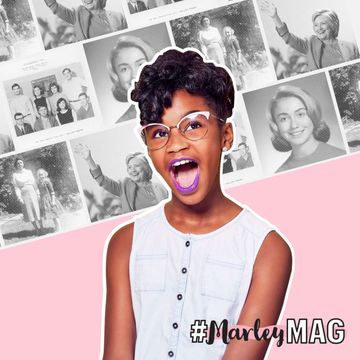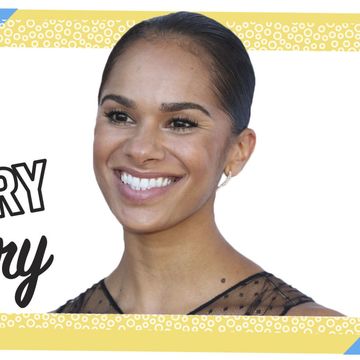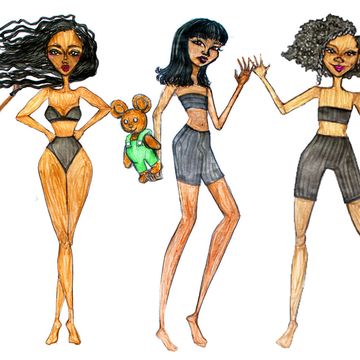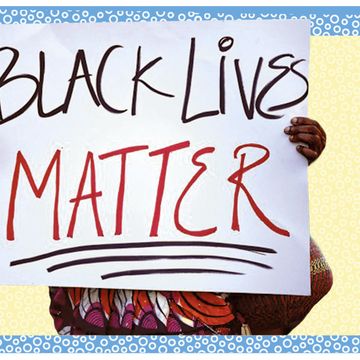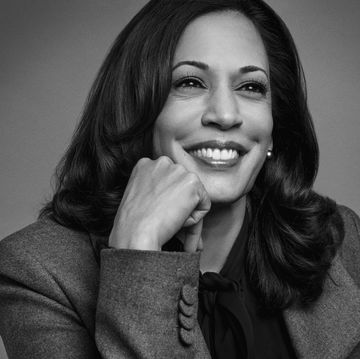I was in elementary school when I was called a racial slur for the first time. The tragedy of September 11 had just taken place, collective blame had just turned the world upside-down for Muslims globally, and a new era of policies and headlines specifically targeting Muslims had made life almost unbearable for me growing up as a Muslim girl. Even when all the media could do was talk about Muslim women, Muslim women were never the ones doing the talking. Our stories weren't the ones being told.
Zareen Jaffery is the protagonist I never had. Jaffery is the executive editor of Salaam Reads, a new imprint of Simon & Schuster that launched in February and publishes children's books featuring Muslim stories and characters. She also happens to be a Pakistani Muslim woman navigating the top of an industry in which there are very few other people who look like her.
"I would tell my friends, 'I don't see myself in publishing for much longer,'" she admits about her early career. "It wasn't until I got to Simon & Schuster, and got to a level where I had more control over what I could publish that I realized the issue: I 'didn't see myself' in publishing because I literally didn't see myself in any of the books I was publishing."
When our Skype call connects for the interview, Jaffery is all smiles. She's speaking from her sister's home, and the faint noise of playtime emanates from the background before a little girl with dark hair runs behind her. Jaffery tells me it's her niece. She is one of a handful of energetic kids who inspired her to get more Muslim characters in books. "My career in children's publishing coincided with the birth of my nephews and nieces," she says. She would send books for them to read, and eventually she could no longer ignore that those books didn't reflect their tiny recipients.
"When I was a kid, I felt the absence of books that included, much less centered on, kids who were brown like me, or first generation, or Muslim," Jaffery says. "I never believed that was something that could change until I became a part of the industry creating those books. Having kids in my life who I wanted to protect from the pain of feeling invisible in children's media made me determined to do something about it."
Dealing with intense bullying, discrimination, and the height of modern-day Islamophobia, I sought refuge in books. Reading became an escape: a way to cope with reality by leaving it for a bit and diving into another world, a world where I could imagine myself as another character living a different life. Jaffery knows what books do for little ones, how they craft an alternate universe where young minds can imagine and play and start to shape their views of the real world around them. And Jaffery thinks those characters shouldn't just offer an escape, but also an inspiring reflection of who we really are.
Jaffery brings up a Junot Diaz quote: "If you want to make a human being into a monster, deny them, at the cultural level, any reflection of themselves." It captures our shared experience perfectly. "As children, we internalize how to be liked and loved by seeing kids depicted in stories," she explains. "Art is a celebration—and who are we celebrating? If we're not depicted, we have to learn to hide the parts of ourselves that we are being taught are not worth celebrating."
I was in the sixth grade the first time I lied about my religion. For a brief moment, I wanted to hide the fact that I was a Muslim so I could escape the hostility and judgment of my peers. It wasn't just that I was experiencing a lack of representation, but a hijacking of representation: I shudder thinking about all the literature we read in high school depicting Muslim women only as repressed and subjugated.
"One of the issues for Muslim kids right now is that although Muslims are a minority in the United States, we are an everyday conversation point in our 24/7 media, which often focuses on a small group of deviant Muslims who are wreaking havoc on the world," Jaffery says. "Without representation that also shows the vast majority of Muslims—devout to secular—people who don't know any Muslims start to see us as potential deviants. And those feelings of fear, distrust, and sometimes hatred, trickle down to their kids."
This is why Salaam Reads is so important. It offers a way for our society to connect with Muslims through characters. "The books we plan to publish aim to present Muslims as they are—a diverse group of human beings who love, hurt, work hard, make mistakes," Jaffery adds. "In sharing stories and embracing diversity, we hope our books will help deter the harassment, discrimination, and bullying that can sometimes be directed at young Muslim children."
Jaffery now has the power to correct the misrepresentation that almost paralyzed me growing up. Her decisions, in her office at the Simon & Schuster headquarters, will influence what lands on classroom bookshelves and in libraries and on children's bookstore racks. Now a new generation of Muslim kids can grow up to write into existence the world they always imagined.



